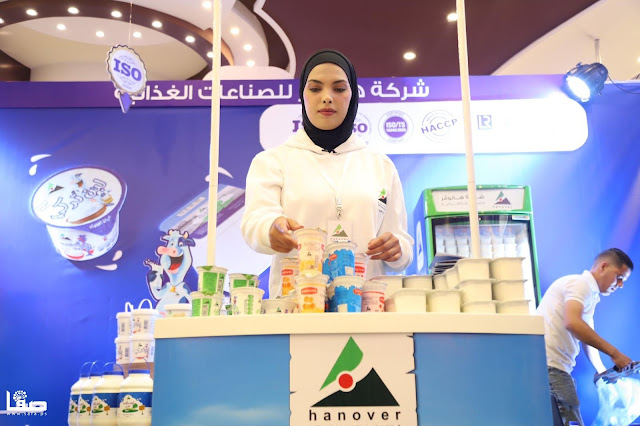A reader asked me to comment on an October report apparently being distributed to EU politicians by some 20 NGOs to pressure them into banning imports of goods from Jews - and only Jews - who work in Judea and Samaria.

These slick-looking reports are churned out with regularity by the anti-Israel crowd, complete with lots of footnotes that no one will ever check out for veracity. Beyond that, they engage in deception by framing issues in the most biased way possible.
I don't have the time to fisk this entire report, called
"Trading away Peace: How Europe helps sustain illegal Israeli settlements," but I noticed one section, 2.2, that is emblematic of the deception throughout the document.
Ban on dual-use items: Israel bans Palestinians from importing a range of “dual-use” items, including chemicals and fertilisers used in factories and agriculture. While Israeli settlers have full access to these materials, Palestinians are forced to turn to more expensive or less effective alternatives that further increase the cost of production and often have greater negative long-term impact on the environment. It is estimated that the fertilizer restrictions lead to losses of between 20% and 33% in agricultural productivity.
It is simply unbelievable that such a paragraph could be written without even acknowledging the history of terror attacks - using home-made explosives - that have come from the West Bank. The demand that Israel ignore its own security imperatives is untenable an shows an alarming lack of concern about the lives of Israelis.
Any report such as this that doesn't even
acknowledge Israel's very real security concerns - even if only to dismiss them - can be assumed
ab initio to be biased against Israel no matter how many footnotes it has.
But here's the next paragraph:
Obstacles to movement of goods: While settlers enjoy easy and direct access to Israeli and international markets, all Palestinian goods destined for Israel or further export must pass through Israeli checkpoints where they are unloaded from Palestinian vehicles and extensively checked before they can be re-loaded onto an Israeli vehicle on the other side (the so-called ‘back-to-back’ system). This is extremely time-consuming and often damages the products. Palestinian goods destined for international markets then pass through Israeli port and airport terminals where they face further disadvantages, obstacles and excessive time delays. All these obstacles significantly reduce the competitiveness of Palestinian products and increase the unpredictability of their delivery times and quality.
This is a bit silly; if there were an independent Palestinian Arab state declared on the 1949 armistice lines today, access to the European markets of Arab goods would have
the exact same restrictions. In fact, goods exported to Jordan from the PA have more onerous restrictions than those going through Israel! (This
recent post of mine addresses the issue.)
In other words, they are objecting to Israel behaving like a sovereign nation.
More deception follows:
Gaza closure: Compared to the West Bank, the Gaza Strip has been subject to even more stringent restrictions, especially since the takeover by Hamas in 2007. Exports from Gaza, a territory inhabited by 1.6 million Palestinians, have been banned almost entirely, contributing to the low volume of overall Palestinian exports. Despite the easing of some restrictions by Israel since 2010, the volume of exports from Gaza is still less than 2% of the pre-2007 levels. EU imports from Gaza over the five years of blockade have been limited to a few shipments of agricultural produce to the Netherlands and two trucks of garments to the UK.
The source for this, Gisha, does not note what percentage of goods exported from Gaza before 2007 went to Israel. My understanding is that a significant majority of all goods exported from Gaza before the blockade did go to Israel. Surely Israel has the right to limit its imports from Gaza if it chooses. So the 2% figure, while probably accurate, does not give any indication of how many goods were exported from Gaza to the EU before 2007, which I would venture to say was negligible. But if, say, 85% of Gaza's goods used to go to Israel then Gisha should note that before putting out the 2% number.
It might just be that Israel doesn't want to buy goods from a sector that is still shooting rockets at it. Just a wild guess. Do these NGOs think that Israel should be allowed to say where it imports its tomatoes from?
Besides, Israel is indeed working to
increase the number of exports from Gaza to the West Bank, as I've reported. One question to ask is what demand there is for Gaza goods in the West Bank today and if that is not being met. Another question is whether any of these NGOs are complaining that Egypt is not importing goods from Gaza, which Israel could not limit if it tried. These are questions that this report does not ask - because the truth is not the goal of reports like these.
This is an indication of the bias that pervades this - and similar - reports. People who are not well-versed in the issues, those who do not have the time or inclination to research it themselves, those who don't have the necessary skepticism and those who are already sympathetic to the anti-Israel cause will swallow this garbage without thinking.
Which is exactly what the Israel-haters want.
The organizations behind this exercise in demonization are:
1. Aprodev
2. Broederlijk delen (Belgium)
3. Caabu (UK)
4. CCFd - Terre Solidaire (France)
5. Christian Aid (UK and Ireland)
6. Church of Sweden
7. Cordaid (Netherlands)
8. danChurchAid (denmark)
9. diakonia (Sweden)
10. FinnChurchAid (Finland)
11. ICCo (Netherlands)
12. IKv pax Christi (Netherlands)
13. International Federation for Human rights (FIdH)
14. Medical Aid for palestinians (UK)
15. medico international (Germany)
16. medico international switzerland
17. The Methodist Church in Britain
18. Norwegian people’s Aid
19. Norwegian Church Aid
20. Quaker Council for european Affairs
21. Quaker peace and Social Witness (UK)
22. Trocaire (Ireland)
Truth and fairness are obviously not part of these organizations' agenda.
By the way, if you object to my characterization in the first paragraph of these organizations' goals as banning imports of goods from only
Jews who work in Judea and Samaria, I am being entirely accurate.
There are a number of industrial zones across the Green Line - Barkan, Atarot and Adumim - whose companies get targeted regularly by the anti-Israel crowd. Richard Falk relies heavily on the "
Who Profits" website when he insists that certain American and Israeli companies be universally boycotted, and this "Trading Away peace" report quotes "Who Profits" some 26 times.
I looked through the Who Profits site, and
I was unable to identify a single Israel-Arab-owned company that they propose boycotting.
Yet, according to this Globes article that discussed the success of these industrial parks, the Atarot park was quoted as having "
a nice combination between Arabs and Jews, both in terms of employment
and business ownership."
So there are definitely Arab-owned companies in these industrial zones - but not one of them are targeted for boycott!
One probable example is
Al Mada'ain Food Products, formerly Slava Food Company, in Atarot, owned by Abu Ghazala Haitham. Assuming that Mr. Haitham is an Israeli citizen, then why isn't his company being tracked for being boycotted by Who Profits or other similar "pro-Palestinian" initiatives? Is he not Palestinian? [If he isn't an Israeli citizen, then presumably the PA will arrest him any hour now.)
When you go beyond the rhetoric and fine print in the volumes of invective released by these NGOs, you uncover the fact that
they really are discriminating against Jews, and only Jews.
I think there is a name for that, but these "humanitarian" organizations get very upset when you say it.


 Elder of Ziyon
Elder of Ziyon

































